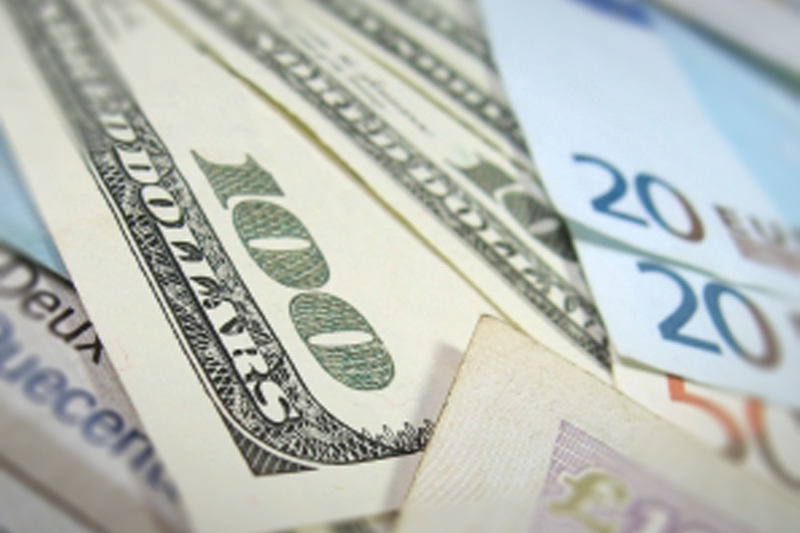Investing.com -- The euro fell mildly against the dollar on Thursday snapping a two-day rally, as Greece sent its furthest indication in months that it could be nearing a deal with its international creditors to unlock critical aid needed to stave off bankruptcy.
EUR/USD dipped 0.0031 or 0.28% on the session to fall to 1.1243, following two days of sharp moves when it appreciated by more than 3%. At one point on Thursday, though, the pair shot up to a session-high of 1.1379, marking the first time it exceeded 1.13 in nearly two weeks. EUR/USD likely gained support at 1.1001 the low from May 22 and was met with resistance at 1.1450, the high from May 18.
Following a five-hour meeting with European Commission president Jean-Claude Juncker, Greece prime minister Alexis Tsipras appeared hopeful that a deal between the two sides could be imminent. The two were later joined by Jeroen Dijsselbloem, president of the Eurogroup of finance ministers. While Tsipras characterized the talks as "friendly and constructive," he remained adamant that any proposal, which included the removal of the nation's Social Solidarity Benefit for low-income pensioners and the increase of a Value Added Tax by 10 points on electricity payments could not be a "basis for discussion."
Although the European Commission indicated that "progress was made in understanding each other's positions," it still emphasized that no agreement had been reached. The two sides are expected to meet again before Tsipras is scheduled to address Greek Parliament on the progress of the negotiations on Friday evening.
Tsipras may have rankled his negotiating partners on Thursday when Athens announced that it will bundle four separate obligations to the International Monetary Fund into one payment of €1.1 billion at the end of the month. Although the move is allowed under IMF bylaws, it could be interpreted as a further indication of Greece's unwillingness to cooperate with its negotiating partners. Greece had faced a €300 million payment due on Friday.
The two sides have made a significant amount of progress in the tense negotiations over the last several days, easing fears that Greece could leave the euro and potentially default on its sovereign debt. Both sides reportedly submitted proposals this week for a deal, which could unlock the final €7.2 billion of a €240 billion bailout to Greece.
Elsewhere, the IMF said in its annual analysis of the U.S. economy on Thursday that the Fed should delay lift-off on raising interest rates until the first half of 2016 unless there are significant improvements in wage and inflationary growth. Investors await Friday's release of the U.S. jobs report from the Department of Labor's Bureau of Labor Statistics for further indications on the strength of the U.S. labor market.
On Thursday, the Labor Department said in a weekly report that initial jobless claims for the week ending on May 30 declined by 8,000 to 276,000 from the previous week. Analysts expected initial jobless claims to fall by 5,000 to 279,000 last week.
Yields on U.S. 10-Year Treasuriessoared to 2.425% in overnight trading, to reach an eight-month high, before falling back to 2.309%. The spread between the U.S. 10-year and German 10-Year bundsnarrowed slightly to 147 basis points.
The U.S. Dollar Index, which measures the strength of the greenback, versus a basket of six other major currencies, ticked up 0.03% to 95.54.
